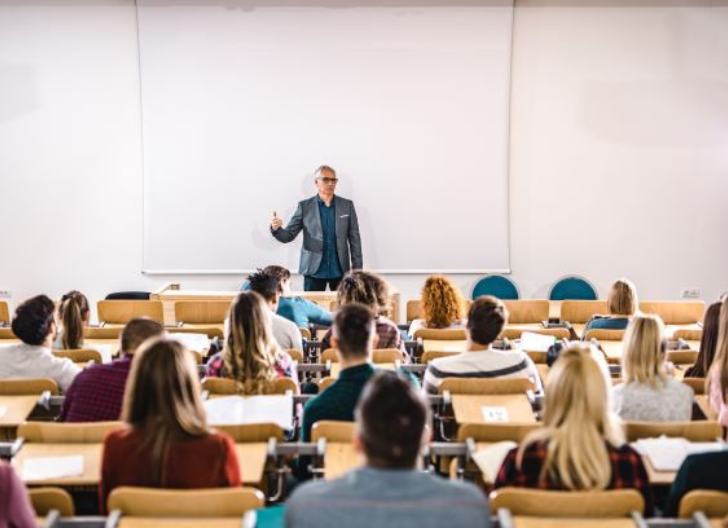How Law Schools are Adapting to COVID-19
The NBI Team

With social distancing serving as an important principle for the foreseeable future, law schools are implementing remote learning, digital clinics, virtual campus tours, and other off-site offerings.
Teaching styles have also had to change as students telecommute to campus rather than sit in a classroom. During the pandemic, technology has offered innovative solutions to ensure students continue learning what they need to know in order to enter the legal profession; the change in approach is also providing an interesting glimpse into what the future of law school might look like.
The Shift to Remote Learning and Virtual Classes
With the onset of the coronavirus pandemic, many law schools immediately changed from in-class sessions to remote platforms to finish out the academic year. In addition, one-sixth of the nation’s two hundred ABA-accredited law schools have decided to conduct the fall semester entirely online or offer extremely limited in-person classes to reduce the health risk.
The American Bar Association has restrictions on how much distance learning can occur in J.D. programs for a law school to keep its accreditation. Currently, only one-third of classes offered for credit may be conducted online, including up to ten credits for first-year law classes. However, the ABA allows for accommodation to be made in times of an emergency or disaster.
Among the schools shifting to a complete virtual fall semester are Harvard Law, University of Connecticut School of Law, George Washington School of Law, Florida Coastal School of Law, and many others. Georgetown Law also decided to begin the semester virtually until it is safe to return to in-person instruction. Other schools, such as Columbia Law, implemented a hybrid schedule consisting of in-person and virtual classes, where students can be present in the classroom on a rotating basis.
Restructured Classrooms Have Become the “New Normal”
Of the law schools that are still holding classes in person or offering hybrid attendance models, some are getting creative to ensure social distancing guidelines are followed. For instance, some schools (like Baylor Law School) have installed outdoor tent structures. At Baylor, one tent specifically serves as its mock courtroom, and another can hold up to 56 students. The tents include socially distanced tables, plexiglass partitions, and climate control. They also have wi-fi access and solid walls to protect from inclement weather.
Other law schools that have resumed indoor and in-person learning are implementing safety measures, such as plexiglass barriers, staggered seating, and regular use of disinfectant wipes in classrooms.
Online Teaching Techniques
One of the most critical elements of law school is learning through the Socratic method. To this extent, remote teaching and learning have changed legal education considerably. While some professors at Columbia Law have noted that Zoom classes can be conducive to Socratic teaching, others find that virtual class time may be better spent discussing policies and applying doctrine.
Rather than live Zoom classes, professors are also teaching through asynchronous classes and taped lectures. While students still have to read from casebooks, they may also be assigned to post on discussion boards and work through hypotheticals for engaged learning in this type of class format.
Law Schools Have Developed Digital Clinics and Remote Internship Options
Law schools continue to offer clinic work and externships for credit, although the models of these programs have changed considerably in many cases. For example, law students may work from home and keep in contact with their clients by cell phone and email. In other cases, where clients don’t have reliable internet access, they communicate with law student clinicians through a physical dropbox where they deliver the documents for their cases. Other law school clinics have focused on issues stemming from or surrounding COVID-19, including helping business owners impacted by the pandemic, delivering food to people in need, and advocating for the rights of individuals who are in detention centers.
Many internships and externship programs have also gone remote during the pandemic. Over the summer, some law firms even developed summer associate programs where students could work remotely and telecommute to the office.
Prospective Students Can Take Virtual Campus Tours
Visiting a law school campus before enrolling is important for prospective law students. While in-person tours may not be possible due to COVID-19, many law schools have started to offer virtual tours as alternatives. During a virtual "tour," prospective students can schedule a “visit” with an admissions counselor, participate in virtual events and sit in on virtual classes to get an idea of the learning experience they would have at the school.
--
This blog post is for general informative purposes only and should not be construed as legal advice or a solicitation to provide legal services. You should consult with an attorney before you rely on this information. While we attempted to ensure accuracy, completeness and timeliness, we assume no responsibility for this post’s accuracy, completeness or timeliness.
